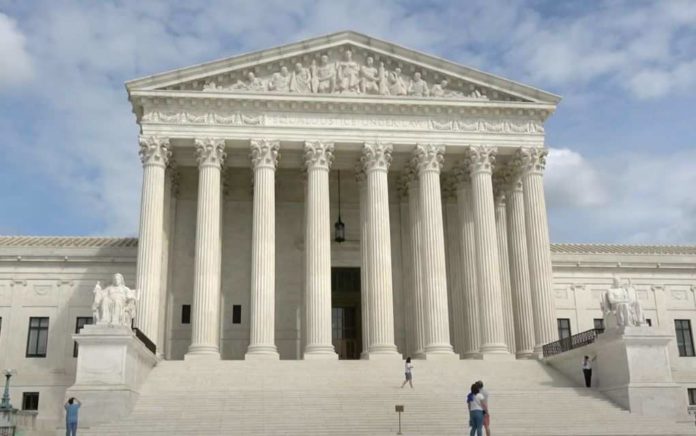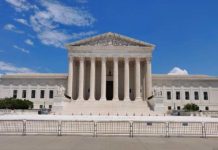
The Supreme Court is in big trouble. If they can’t figure it out, there’s no telling what could happen next.
Because a Supreme Court Justice lambasted her colleague in an epic takedown.
Upholding Judicial Impartiality
In a compelling interview with Fox News’ Bret Baier, Supreme Court Justice Amy Coney Barrett offered a refreshing defense of the Court’s independence, emphasizing that justices “wear black, not red or blue,” symbolizing their commitment to the Constitution over partisan politics.
Promoting her new book, Listening to the Law, Barrett provided an insightful look into the Court’s operations, aiming to bridge the gap between public misconceptions and the reality of its nonpartisan work.
Her poised and principled stance reinforces her reputation as a jurist dedicated to fairness and constitutional fidelity, aligning with the First Amendment’s protection of free expression by ensuring judicial decisions remain free from political pressure.
Barrett’s remarks highlighted the Court’s unity, debunking notions of partisan divides. “We don’t wear red and blue, we all wear black because judges are nonpartisan,” she told Baier, noting that justices sit by seniority, not ideological alignment.
Clarifying Constitutional Principles
Addressing criticisms that the Court shields specific political figures, Barrett provided a thoughtful historical perspective, particularly on cases involving presidential power.
“We’re not deciding cases just for today, and we’re not deciding cases based on the president,” she explained, emphasizing that rulings focus on the presidency as an institution, with implications for future administrations.
Her measured approach reflects a deep respect for the Constitution’s enduring framework, ensuring that decisions uphold the rule of law while safeguarding the First Amendment’s guarantee of free discourse by maintaining judicial neutrality.
Barrett also clarified the Dobbs decision, countering widespread misinterpretations. “Dobbs did not say that abortion is illegal. Dobbs said it belongs to the political process,” she stated, highlighting that the ruling empowered democratic debate rather than imposing a blanket prohibition.
Safeguarding Judicial Integrity
Barrett addressed the growing threats to judges, firmly stating that violence should not be “the cost of public service.” Her resolve to protect judicial independence while acknowledging public scrutiny reflects a balanced approach that prioritizes integrity over popularity.
“The Court… can’t take into account public opinion in making individual decisions… you have to follow the law where it leads,” she said, reinforcing her commitment to principled decision-making. This stance not only defends the judiciary’s role but also supports the First Amendment by ensuring the Court remains a neutral arbiter, free from external pressures.
Through her interview and book, Barrett emerges as a steadfast advocate for the Court’s impartiality, offering a clear-eyed perspective that counters polarized narratives. Her dedication to constitutional principles and her ability to articulate the Court’s role with clarity make her a vital voice in upholding the judiciary’s integrity, fostering a judicial environment where free expression and constitutional fidelity thrive.


















